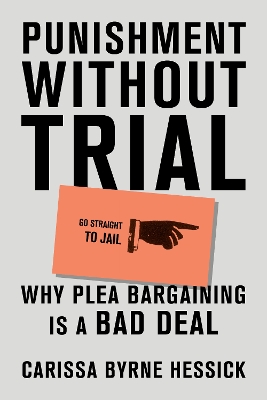Reviewed by Jeff Sexton on
Truly a remarkable and shocking work, and one that every American needs to read. Very much recommended.
Reading updates
- Started reading
- 21 August, 2021: Finished reading
- 21 August, 2021: Reviewed

From a highly accredited criminal law professor at the University of North Carolina, a provocative and timely exploration of how plea bargaining prevents true criminal justice reform and how we can fix it
When Americans think of the criminal justice system, the image that pops into their minds is a trial. They envision a standard courtroom scene with a defendant, attorneys, a judge, and most importantly, a jury. It’s a fair assumption. The right to a trial by jury is enshrined in both the Constitution (Article III, Section 2) and the Bill of Rights (the Sixth Amendment). It’s supposed to be an inalienable right that undergirds our entire justice system.
But in Punishment Without Trial: Why Plea Bargaining is a Bad Deal, University of North Carolina law professor Carissa Byrne Hessick illustrates that the popular conception of a jury trial couldn’t be further from reality. That bedrock constitutional right has all but disappeared thanks to the inexorable march of plea bargaining, which began to take hold during Prohibition and has skyrocketed since 1971, when it was affirmed as constitutional by the Supreme Court. In 2018, more than 97 percent of defendants pleaded guilty. The consequences are dire.
Nearly every aspect of our criminal justice system is designed to encourage defendants—whether they’re innocent or guilty—to take a plea deal. Punishment Without Trial showcases how plea bargaining has undermined justice at every turn and across socioeconomic and racial divides. It forces the hand of lawyers, judges, and defendants, turning our legal system into a ruthlessly efficient mass incarceration machine that is clogging our jails and punishing its citizens because it’s the path of least resistance.